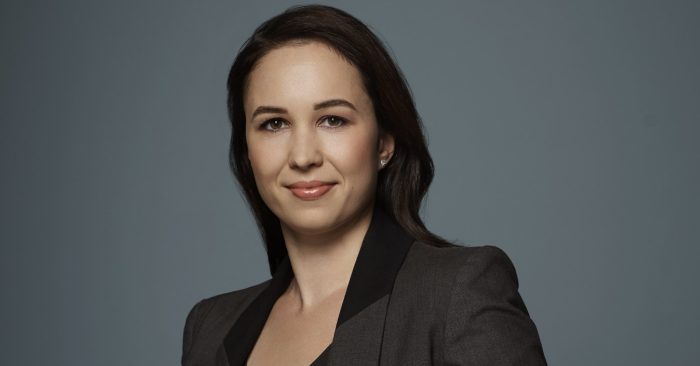
While research shows fewer people are choosing to train in economics, it remains the preferred degree for a range of careers and jobs that offer attractive salaries. Leading economists also enjoy perks like international travel and the chance to network with global financial services leaders. Here, some of Australia’s top and emerging economists explain why it remains a fruitful area in which to work and study.
According to the recruitment firm Hays’ latest salary survey, a Sydney-based economist earns on average between $120,000 and $170,000 a year, with senior economists working in Sydney earning between $130,000 and $180,000.
Despite this, Reserve Bank of Australia research shows Australian high school economics students are turning their backs on this fundamental discipline once they get to university, preferring to study commerce and finance or even arts and social sciences.
However, leading economists like AMP deputy chief economist, Diana Mousina, say an appreciation of economics provides a great grounding for a rewarding working life. If her career is anything to go by, it’s also a springboard to success.
“I was surprised with the data we’ve seen in the decline in the study of economics; it used to be the top subject after maths and English for year 12 students. Economics is so worthwhile. It gives you a framework to think about how the world works, financial markets and how people make decisions,” says Mousina.
While Mousina chose to move into the field after her studies, you don’t have to work as an economist just because you study it.
“It just gives you an understanding you can apply to many other fields. It helps you appreciate politics and how everything fits together, because the economy is what makes the world go around and it’s what keeps people employed,” she says.
Mousina decided to study economics in a double degree with commerce after falling in love with the discipline at school. “The sliding doors moment was when I was a graduate at CBA. I was supposed to do a rotation I didn’t want to do, so I asked to do an economics rotation instead.”
She encourages aspiring economics’ students not to worry about the maths component of the degree. “There are so many different avenues in economics, you don’t have to focus on maths. You could take more of a political path or you could take a maths channel if you like quantitative economics and econometrics. Then, there’s the micro economics path if you’re interested in public policy. It’s quite broad.”
ANZ economist Sophia Angala started studying economics in high school and is just at the beginning of what will hopefully be a long career.
“I picked up economics when I was 15 as I admired its real world applications; everything around us is related to economics. I wanted to learn how economic systems such as trade or financial markets influence the decision making of the people around me. I also admired its use of problem solving to analyse and deliver policies and solutions that could impact everyone.”
Angala did a commerce degree with a major in economics and finance, alongside a mathematics diploma, before joining the ANZ graduate program.
“I’m in the institutional bank and in my final rotation within market sales I got the opportunity to accompany a dealer in the team and an economist to see how economics presentations were delivered to clients. Through that, I got to see how economics could be used not just as an educational tool, but to help inform businesses to make decisions. I also admired the dynamism of it all; no two presentations are the same,” she explains.
Experts like Simone Mears, managing director of specialist financial services recruitment firm, Profusion Group, say an economics degree remains valuable in fields like investment banking.
“It provides a solid foundation in how markets work, macroeconomic trends, microeconomic behaviour and skills like modelling and how to use them. But, with the changing shape of the workplace, employer requirements have also changed,” says Mears.
“While 30 years ago technical skills were highly prized, soft skills, life experiences, personal and academic achievements, volunteering, work and study abroad experience are also of value,” she says.
For UBS Australasia chief economist and head of macro research, George Tharenou, being an economist is one of best jobs in the world. It also has challenges. Tharenou did this interview at home, having been on the road the week prior in Asia.
“I’ve got four kids running around, coming in and out, such as life. I went to 30 client meetings last week and got caught in a typhoon in Hong Kong. But it was always my dream to be a market economist, after being captain of the Australian cricket team. But the opportunity to travel the world, talk about financial markets, meet very smart and interesting people, is pretty unique,” he says.
Tharenou has worked for UBS for almost 20 years and relishes the chance to influence market thinking about how the economy works. But achieving work/life balance is a constant juggle.
“It sounds glamorous when you get to go to Paris and Milan and all these exotic places. But actually, you really need to demonstrate to the market that you’ve got credibility and you’re differentiated.”
Tharenou was offered two roles when he started his career, one in investment banking and the other at the Reserve Bank of Australia. He chose the RBA, a decision that helped him secure a position at UBS, after also working at Queensland’s Department of Treasury while completing postgraduate studies in economics, earning first class honours.
“Having Treasury and RBA experience really differentiated me when UBS was expanding its economics team. I jumped at the opportunity and haven’t looked back.”
While Tharenou’s achievements are particularly outstanding, most people who have studied or worked in economics can attest it’s a very worthwhile foundation for a range of careers and a way to develop a sound understanding of how the world works.
https://finsia.com/news-and-resources/a-foundation-in-economics-the-basis-for-career-longevity